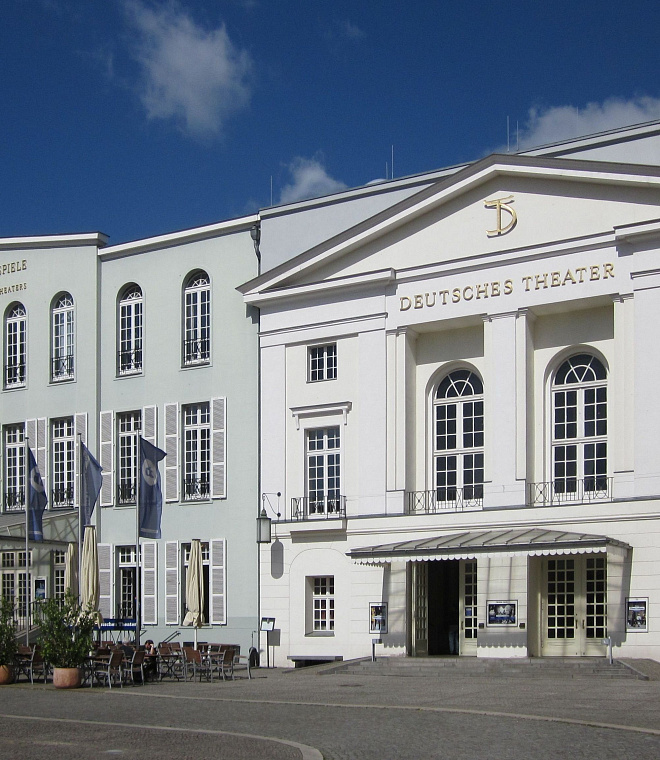The Deutsches Theater in Berlin is a theatrical institution with a permanent and highly-acclaimed ensemble. Behind its classical façade, the Deutsches Theater building on Schumannstraße is home to three stages: the main stage, built in 1850, with its intimate auditorium that seats 600; the 'Kammerspiele', established by Max Reinhardt in 1906 for modern drama, which holds some 230 spectators; and the Box, a compact black box located in the Kammerspiele foyer with seating for 80, which opened in 2006.
The theatre’s repertoire includes both classics and modern classics by writers such as Albert Camus, Anton Chekhov, Heinrich von Kleist, Heiner Müller, Jean-Paul Sartre, William Shakespeare and Tennessee Williams. At the same time, the DT stages works by contemporary playwrights like Dea Loher, René Pollesch, Wolfram Lotz, Elfriede Jelinek, Thomas Melle, Ferdinand Schmalz and Nis-Momme Stockmann – including many world premieres. Once a year in May or June the Deutsches Theater plays host to the Autorentheatertage, a festival of contemporary drama.
Signature productions, ongoing collaborations with established and up-and-coming directors, and faith in the abilities of his spirited and talented ensemble: these are the cornerstones of Ulrich Khuon’s artistic concept for the Deutsches Theater since 2009. Khuon has brought on board directors with distinctive directing styles, including: Jan Bosse, Sebastian Hartmann, Stephan Kimmig, Bastian Kraft, Andreas Kriegenburg, Martin Laberenz, Anne Lenk, Daniela Löffner, Karin Henkel, René Pollesch, Tom Kühnel, Jürgen Kuttner, Ulrich Rasche, Kirill Serebrennikov and Jette Steckel.
